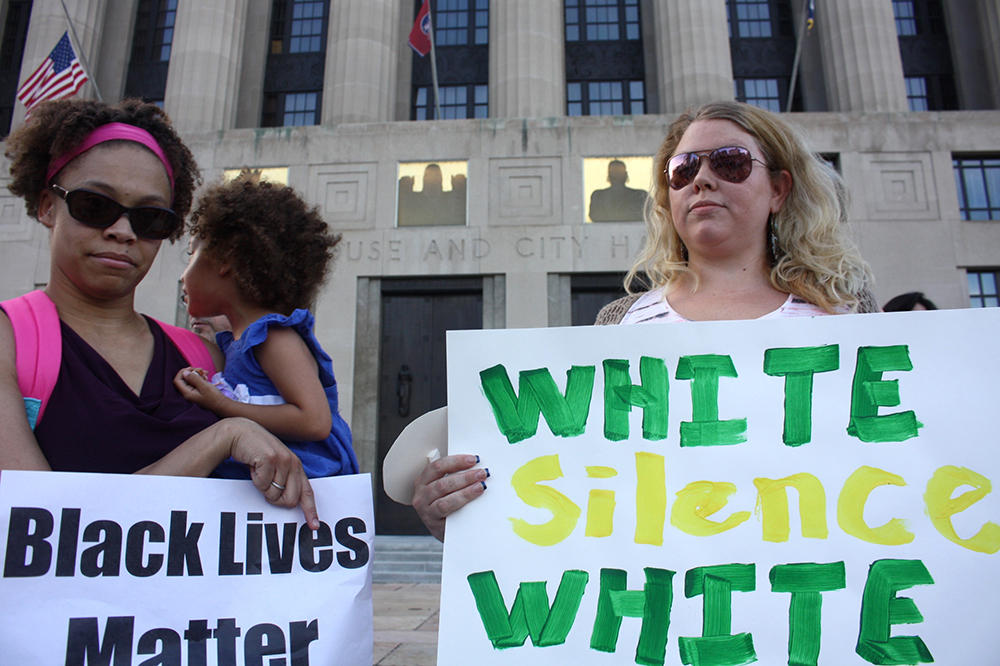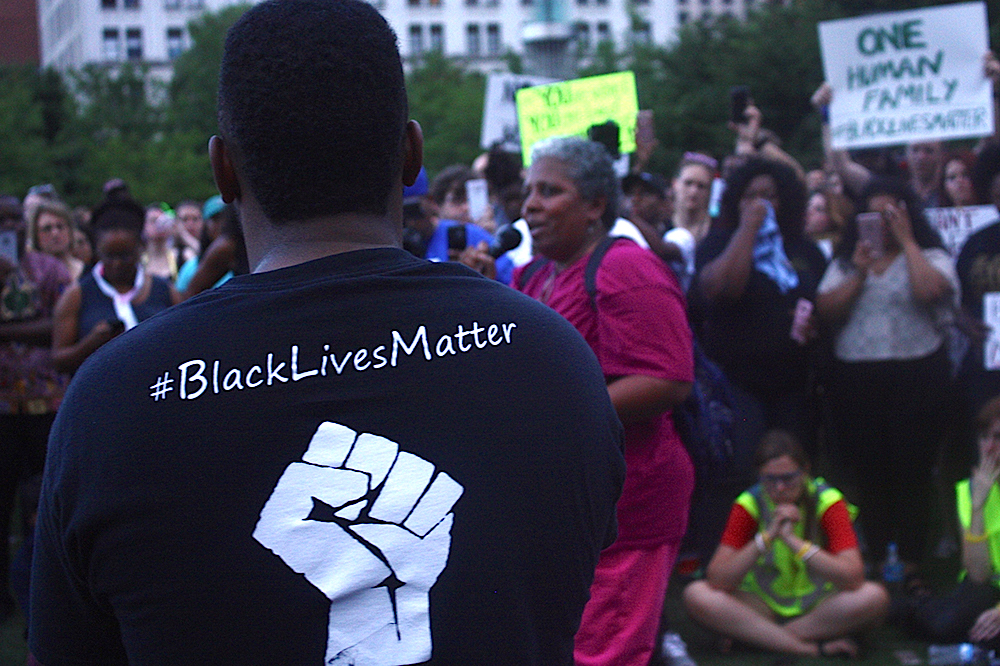
Black Lives Matter is the name of the group that’s been leading protests and marches in Nashville, but the people attending have been surprisingly diverse.
And for white activists, many are still trying to figure out their role.
At a training event this week, aimed at teaching white people how to talk to each other about racism, Emily Sellars said she’s struggling to figure out how she can help in a movement that’s all about getting the voices of African-Americans heard.
So she attended the training event at Casa Azafran in the hopes that she would be able to understand her role.
“I do think it’s worth thinking about,” she said. “We shouldn’t assume that a white presence is just as desirable or helpful.”
But she also wasn’t sure if separating white activists into a different group was helpful either.
At the training event
, the leaders were white, the people in the room were almost all white, and the training was about how to talk to low-income and working-class white people about racism.
But another attendee, Jessica Hanson, says that’s not a bad thing.
“I definitely feel that there’s not enough white people speaking up for this,” she said.

The organizers of the training, from a newly formed group called Workers Against Racism Nashville, say the demographics were intentional.
”
Black Lives Matter has said on numerous occasions that if white people want to help, they need to change things in their community,” organizer Leah Green told WPLN. “This is in direct response to those calls.”
Some white activists, like those in the group Showing Up for Racial Justice, say it’s important to come to Black Lives Matter protests — but just stay in the background in a supporting role.
Last Friday, during a large vigil and march in Nashville, most of the people who took a turn at the microphone were African-American, including Grayce Gadson. She told the crowd that it was a relief to see so much diversity.
She said her uncle was shot and killed by police in Goodlettsville in 1971, and the protesters after that incident were all black.
“But today, I’m so glad that we’ve got everyone here,” she said. “Times indeed have changed.”
Update July 14, 10:30 a.m.: This story has been updated to include a response from Workers Against Racism Nashville.


